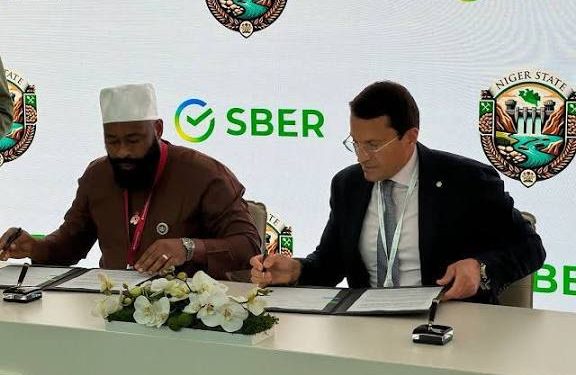The Niger State Government and a delegation of Russian investors have begun fresh steps to strengthen cooperation in agriculture and mining, in a move expected to unlock new investment opportunities for the state.
Governor Mohammed Umaru Bago hosted the Russian delegation in Minna, following a Memorandum of Understanding earlier signed between Niger State and Sber Bank of Russia on agricultural and mining development. The delegation was led by Mr. Peter Arseniev and included representatives from Sber Bank, the Russian Trade Commission, equipment manufacturers, strategic partners, and Rostselmash, a global agricultural machinery company.
According to the governor’s Chief Press Secretary, Bologi Ibrahim, the mission was primarily fact-finding, giving the delegation a first-hand look at Niger State’s potential in key sectors. Governor Bago described the visit as a sign of commitment to previous agreements and evidence that his recent visit to Russia was already producing results. He expressed optimism that the partnership would open up a promising future not just in agriculture and mining, but also in emerging areas such as telemedicine and education.
Chairman of Niger Foods, Sammy Adigun, confirmed that the delegation had toured farmlands across the state and witnessed the scale of its arable land and water resources. This, he said, demonstrated the enormous potential Niger State holds for agribusiness investments.
Members of the Russian delegation described their experience as thrilling and productive, emphasizing Niger State’s untapped potential in both agriculture and mining. They pledged commitment to mobilizing resources, strengthening partnerships, and fostering sustainable development within the state.
To round off the visit, a gala evening was held in Minna in honour of the delegation, featuring vibrant traditional and cultural performances.
For Niger State, the partnership could mark an important step toward expanding foreign investment, modernizing its agricultural systems, and leveraging mining resources to diversify the local economy. For smallholder farmers and agribusiness entrepreneurs, access to Russian machinery, expertise, and capital could also create new opportunities across the value chain.










